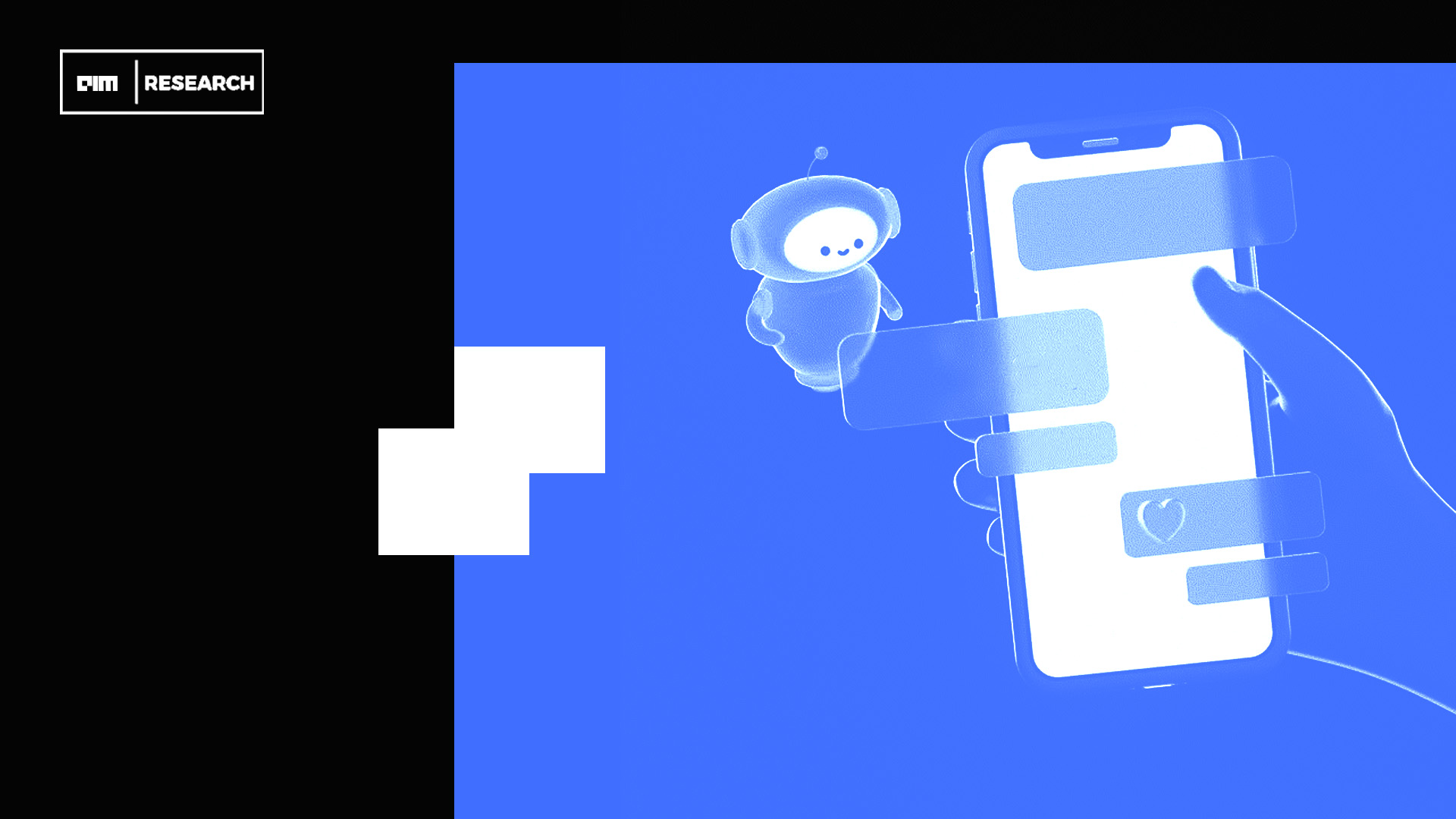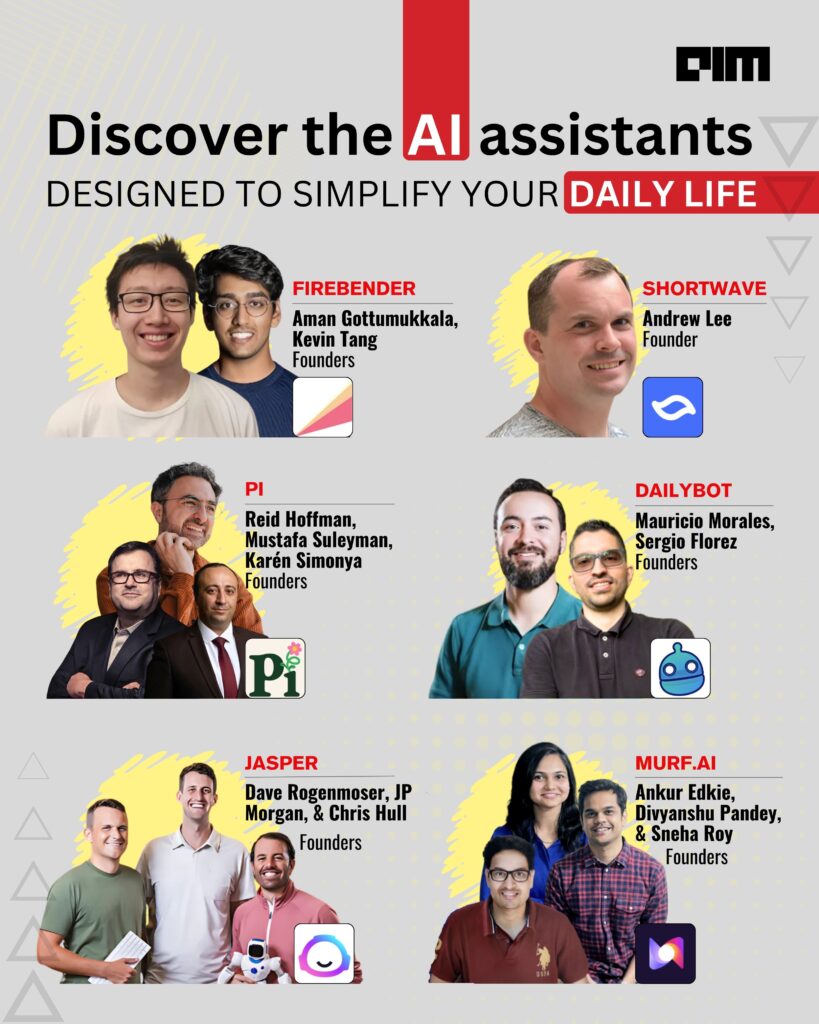
Discover the AI assistants designed to simplify your daily life
- By Upasana Banerjee
- Published on
AI assistants interact with users through text or voice offering a more natural, personalised experience


Imagine you are a mega movie star or a doctor, you would require someone to keep track of your shoot timings or appointments, who could complete tasks, fix your schedules depending on your requirement.
Once upon a time, the world relied on such human assistants for various tasks, from fetching mail to answering phone calls, all of which were typically delegated to people for a salary. However, in today’s world, we still need assistance and delegation regularly. Therefore AI assistants have become the most accessible solution, who could act on all these requests.
An AI assistant is a software that uses artificial intelligence to understand natural language voice commands and complete tasks for the user. They interact with users through text or voice offering a more natural, personalized experience.
Amazon’s Alexa or Apple’s Siri are the most common examples of what an AI assistant can do.
But with the evolution of Generative AI, various AI assistants have come into existence. However they serve different purposes and on different levels depending on the users.
We are all aware of Google Assistant, Microsoft Cortana and Samsung Bixby as some of the most popular and frequently used AI assistants but let us introduce you to some of the obscure task specific AI assistants that can come handy whenever you need them.

Murf.ai
Founder: Ankur Edkie, Divyanshu Pandey, and Sneha Roy
It’s time to say goodbye to time-consuming and old-fashioned voiceover production process as this a cloud-based text-to-speech platform enables users to create realistic AI voiceovers for various purposes, including eLearning (Authoring, LMS, etc.), YouTube videos, podcasts, software and app demos, and marketing and advertising. Murf’s AI assistant was created by Anthropic, which uses advanced natural language processing techniques (NLP) and deep learning algorithms to comprehend user queries and produce human-like responses. In addition to its text features, a user can give voice commands and indulge in voice interactions to acquire information. Its highly customised, simple to use interface, maybe your new favorite
Shortwave
Founder: Andrew Lee
Sitting high on the throne we have Shortwave, an AI-driven email client designed to enhance productivity through advanced AI and real-time team collaboration. With AI at its core, the team says the productivity increases by 10x or more, which combines advanced AI with all your business communications in one app. Users can grant the AI access to their data and maintain full control over its actions. With just one click, the AI assistant can identify urgent emails, group threads into to-dos, and sweep away the remaining clutter so you can get to inbox zero with zero effort.
Jasper
Founder: Dave Rogenmoser, JP Morgan, and Chris Hull.
Introducing an extremely profession specific AI assistant, that is built to cater to the needs of marketers by providing industry-specific insights and enabling seamless integration across tools, streamlining responses and driving impact. According to the team of Jasper, AI is revolutionizing marketing content by allowing brands to scale content, tailor customer experiences, and achieve quicker ROI while remaining consistent with their brand identity. Therefore, Jasper’s AI assistant can create high-quality marketing content, blog posts using its AI capabilities. Their assistants would prompt you to make better content instead of the other way around.
Firebender:
Founder Aman Gottumukkala, Kevin Tang
While collaborating for Firebender OS – an AI-powered fork of Android, founder Aman Gottumukkala and the co-founder Kevin Tang constantly struggled without a good AI coding assistant for Android development. This gap presented a clear opportunity for them to create Firebender the best AI coding assistant for Android developers. Unlike most AI-assistants with obsolete android knowledge, Firebender continuously updates its knowledge base and adopts best practices for the coding ecosystem. Its AI chat feature provides the user with comprehensive assistance with codebase, logs, profiler and emulator.
DailyBot:
Founder Mauricio Morales, Sergio Florez
Imagine you log in and your work process is smoother than usual.That’s what DailyBot is presenting to its users. In the words of the CEO, “ You input your name and role, and we will assemble your AI assistant army.” The AI-assistant collaborates with tools like Slack and Microsoft Teams to enhance teamwork by automating tasks, streamlining communication, and offering features that aren’t natively available in these platforms. They help teams provide faster and more efficient tools like task reminders, smart scheduling, and data-driven insights.
Pi
Founder: Reid Hoffman, Mustafa Suleyman, Karén Simonya
The creation of Pi was driven by a clear vision: “Putting a personal assistant in the hands of everyone.” Inflection AI sought to create an assistant that could do more than just answer questions or complete tasks. It aimed to craft an AI that could form connections with users, interact in a more human-like manner, and provide a deeper, more engaging experience. This vision has been realised with Pi, an assistant that is designed to be accessible, friendly, and truly helpful. While many AI assistants can help manage calendars, send messages, or set reminders, Pi takes things a step further. It is not just a tool for task completion; it’s designed to participate in meaningful conversations and offer advice tailored to each user’s needs.
As AI and machine learning technology continues to advance, the capabilities of virtual assistants will only increase. Future AI assistants may evolve to become even more sophisticated, with enhanced emotional intelligence, predictive abilities, and multi-tasking capabilities. But what people often interchangeably use are the terms AI assistants and AI agents. Even though their core goals are the same, they have quite a few distinctive features.
One of the fundamental differences is the user-driven prompts. While AI assistants must receive prompts for each action; AI agents can function independently after an initial kickoff prompt. AI assistants are meant to perform certain predefined tasks, on the other hand AI agents can and are expected to perform complex multi-step tasks. Nevertheless AI assistants are still a word of the present while AI agents are still a work in progress
📣 Want to advertise in AIM Research? Book here >

Cypher 2024
21-22 Nov 2024, Santa Clara Convention Center, CA
A Vendor Briefing is a research tool for our industry analysts, and an opportunity for a vendor to present its products, services and business strategies to analysts who cover the vendor specifically or a related technology or market.
AIM Research encourages technology vendors and agencies to brief our team for PeMa Quadrants, when introducing a new product, changing a business model, or forming a partnership, merger, or acquisition.


